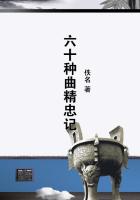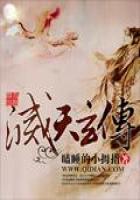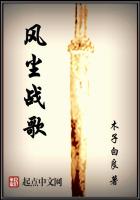Immediately after the battle, as the Prince was riding along the ground that Cope's army had occupied a few minutes before, one of the officers came up to congratulate him, and said, pointing to the killed, `Sir, there are your enemies at your feet.' The Prince, far from exulting, expressed a great deal of compassion for his father's deluded subjects, whom he declared he was heartily sorry to see in that posture.Next day, while the Prince was at Pinkie-house, a citizen of Edinburgh came to make some representation to Secretary Murray about the tents that city was ordered to furnish against a certain day.Murray happened to be out of the way, which the Prince hearing of, called to have the gentleman brought to him, saying, he would rather despatch the business, whatever it was, himself, than have the gentleman wait, which he did, by granting everything that was asked.So much affability in a young prince, flushed with victory, drew encomiums even from his enemies.But what gave the people the highest idea of him, was the negative he gave to a thing that very nearly concerned his interest, and upon which the success of his enterprise perhaps depended.It was proposed to send one of the prisoners to London, to demand of that court a cartel for the exchange of prisoners taken, and to be taken, during this war, and to intimate that a refusal would be looked upon as a resolution on their part to give no quarter.
It was visible a cartel would be of great advantage to the Prince's affairs; his friends would be more ready to declare for him if they had nothing to fear but the chance of war in the field; and if the court of London refused to settle a cartel, the Prince was authorised to treat his prisoners in the same manner the Elector of Hanover was determined to treat such of the Prince's friends as might fall into his hands: it was urged that a few examples would compel the court of London to comply.
It was to be presumed that the officers of the English army would make a point of it.They had never engaged in the service, but upon such terms as are in use among all civilised nations, and it could he no stain upon their honour to lay down their commissions if these terms were not observed, and that owing to the obstinacy of their own Prince.Though this scheme was plausible, and represented as very important, the Prince could never be brought into it; it was below him, he said, to make empty threats, and he would never put such as those into execution; he would never in cold blood take away lives which he had saved in heat of action, at the peril of his own.These were not the only proofs of good nature the Prince gave about this time.Every day produced something new of this kind.These, things softened the rigour of a military government, which was only imputed to the necessity of his affairs, and which he endeavoured to make as gentle and easy as possible.''
It has been said, that the Prince sometimes exacted more state and ceremonial than seemed to suit his condition; but, on the other hand, some strictness of etiquette was altogether indispensable where he must otherwise have been exposed to general intrusion.He could also endure, with a good grace, the retorts which his affectation of ceremony sometimes exposed him to.It is said, for example, that Grant of Glenmoriston having made a hasty march to join Charles, at the head of his clan, rushed into the Prince's presence at Holyrood, with unceremonious haste, without having attended to the duties of the toilet.The Prince received him kindly, but not without a hint that a previous interview with the barber might not have been wholly unnecessary.``It is not beardless boys,'' answered the displeased Chief, ``who are to do your Royal Highness's turn.'' The Chevalier took the rebuke in good part.
On the whole, if Prince Charles had concluded his life soon after his miraculous escape, his character in history must have stood very high.As it was, his station is amongst those, a certain brilliant portion of whose life forms a remarkable contrast to all which precedes, and all which follows it.
Note AA, p.<? p370>.---The Skirmish at Clifton.
The following account of the skirmish at Clifton is extracted from the manuscript Memoirs of Evan Macpherson of Cluny, Chief of the clan Macpherson, who had the merit of supporting the principal brunt of that spirited affair.The Memoirs appear to have been composed about 1755, only ten years after the action had taken place.They were written in France, where that gallant Chief resided in exile, which accounts for some Gallicisms which occur in the narrative.















